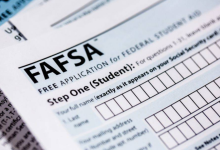14 Short-Term Financial Goals For College Students

Short-term financial goals for college students are targets that can be met in less than two years. These objectives can be pursued on their own or as stepping stones to larger goals.
short-term financial goals for college students aim would be to save for a vacation or a down payment on a car. Continue reading to learn what financial ambitions students in the United States hope to achieve shortly.
Key Takeaways
- Setting financial objectives early in life, regardless of your financial background, can help you develop successful money habits that are critical to your financial well-being as an adult.
- Financial goals can be classified into three categories based on time frame: short-term, medium-term, and long-term.
- Students should set solid financial goals such as developing a budget, opening a savings account, starting to invest for retirement, setting up an emergency fund, applying for financial aid, building credit, and utilizing debt as little as possible.
- While it is vital to create financial objectives for oneself, doing so does not ensure a good financial future; rather, it is a start in the right direction.
Different types of financial goals
When setting financial objectives, examine the three primary categories of goals, which can be divided down by time frame:
Short-term: These are goals that you want to achieve within a year. Taking a short vacation, moving to a new apartment, or making a large purchase, such as a new computer or furnishings, are all examples of items.
Medium-term: You are aware that you will most likely not achieve this objective for the next one to five years. Perhaps you want to go on a longer trip or study abroad, or you’re saving for graduate school, a wedding, or a down payment on a home.
Long-term: Goals are those that will take more than five years to achieve, such as saving for retirement or making a larger down payment on a property.
Be realistic about your goals and likely timeline.
14 Short-Term Financial Goals For College Students
As a college student, you may have large goals for the future, such as visiting all 50 states or buying a home. However, when viewed as a whole, these ambitions may appear financially burdensome or impossible. This is where short-term financial objectives come in.
1. Establish (or restore) your emergency fund
One of the first short-term financial goals you should establish is to build an emergency reserve of 3-6 months of living expenses. An emergency fund is a savings account set up to cover unexpected expenses like car repairs, medical bills, and job loss. Once you’ve depleted your fund, replenish it in case of future emergencies. A Vorhees University student explains his plan to replenish his emergency fund:
2. Increase your financial literacy
Financial literacy is the capacity to comprehend money ideas. This includes knowing how to stick to a budget, utilize credit cards sensibly, save for retirement, and so on. Once you comprehend these concepts, you will be able to make more informed financial decisions. Financial education is rarely taught in schools, therefore students must educate themselves on personal finance.
The more you understand money and how to use it, the more positive your relationship with it will be. You can boost your financial literacy by reading personal finance books, listening to money podcasts, or following financial education pages on social media. Short-term literacy objectives could include reading one personal financial book per month or listening to a finance podcast episode when driving long distances.
3. Save For Studies Abroad
When you study abroad, you get to immerse yourself in another culture. In a distant place, you can make friends with the locals, eat delicious food, learn a new language, and explore your surroundings. Before you travel abroad, whether for leisure or education, you should begin saving for your trip. Anika, a University of Central Florida student, explains her financial goal for studying abroad.
4. Start a side hustle
Cutting back on spending isn’t always enough to cover college costs. Sometimes you need to increase your revenue. However, standard part-time work may not be realistic given your student schedule. Fortunately, there are numerous side hustles for college students that suit your schedule and interests.
You could consider tutoring, babysitting, or freelancing to supplement your income while continuing your studies. The extra money you make from your side business can help you meet your financial objectives faster. Your short-term objective could be to earn $100 from your side business in the next month.
5. Stay within your means
It’s easy to strive to keep up with your peers’ lifestyles and spending habits in college. Financial peer pressure can lead you to spend money you don’t have on goals that aren’t important to you. Instead, attempt to stick to your budget. Reid from Abraham Baldwin Agricultural College outlines how he intends to live within his means:
6. Pay your credit card debt
Perhaps you needed to use your card in an emergency or went a little beyond with impulsive purchases. Whatever the reason for your credit card debt, it is best to pay off any high-interest debt as soon as possible. Setting a financial goal to pay off debt can boost your well-being.
You should always try to make the minimum credit card payment every month. Strive to make additional payments whenever possible. This allows you to pay less in interest over time. For the next year, you may set a goal of paying double the minimum payment on your credit cards.
7. Get a car
A car is not required for a successful college experience. However, purchasing a car allows you to visit locations and attend events off campus that were previously unavailable. Whether you buy a used car outright or get a loan, owning a vehicle affords you freedom. Katherine, a State College of Florida student, explains why buying a car is crucial to her:
8. Increase your credit score
Building a strong credit score is critical for demonstrating your financial accountability to lenders. Fortunately, there are numerous methods to establish credit as a student. You can obtain a credit card, handle student or personal loans, or become an authorized user on someone else’s card.
Regardless of which method you choose, your payment history is one of the most essential aspects in determining your credit score. To improve your credit score, make sure you pay on time every month, as a single missed payment might potentially lower your score. A short-term objective could be to boost your credit score from 640 to 740 within a year.
9. Prepare for retirement
Saving for retirement might be a short- or long-term financial objective. However, it is never too early to begin saving for retirement. One simple approach to saving is to set up automatic transfers from your paycheck to a retirement account. If your business provides a 401(k) plan with matching benefits, take full advantage. A University of Michigan student discusses her short-term financial aim of learning more about her employer-matched retirement plans:
10. Begin saving a down payment for a house
Purchasing a home may appear daunting to college students. Fortunately, the home-buying process can be simplified by starting to save for a down payment. First, construct a budget to determine a reasonable monthly savings amount. Then, open a new savings account just for your down payment.
The path to homeownership is a long one. However, achieving your goal will take you one step closer to avoiding communal dorm showers and noisy apartment neighbors. To prepare for a down payment, you may set up an automated savings transfer from your bank account or participate in a fun savings challenge.
11. Graduate without debt
College is expensive, but it does not have to be a financial hardship. Working while in school, applying for various scholarships, and cutting back on non-essential spending can all help to lower your debt. Kaden discusses his short-term objective of graduating from college with no debt.
12. Support your children’s education
Saving for school expenses, whether for your own or future generations, assures access to a high-quality education. Assume you intend to pursue graduate school at Notre Dame or fund your children’s college education. Saving for these expenses helps you attain your goals.
When the time comes, you’ll want to teach your children about savings and finances. We’ll be available to assist with resources, savings accounts, and loans.
13. Master the Budgeting
Budgeting is the process of constructing a financial plan. It allows you to know where your money is going and ensures you don’t spend more than you make. Assume you build a budget for your college life in Lafayette. You realize you’re overspending on dining out. You can save money by sticking to a budget and cooking more at home.
Use the BankPawa printable budget spreadsheet to keep track of your expenditures and develop a budget tailored to your student life. Our helpful consultants can also help you get started.
14. Start Investing
Investing is the process of purchasing assets with the idea that their value will improve in the future. You have the option of investing in stocks, money market accounts, mutual funds, real estate, and other assets. Although there is the opportunity to profit from investing, there is also the risk of losing money.
Do your research before investing. If you’re not sure which form of investment portfolio is appropriate for you, consult with a financial expert. They can advise you and assist you make sound investing selections. Start modest and be patient; do not expect to become wealthy immediately.
What Is a Financial Goal?
A financial goal is a monetary target that you aspire to reach. This may be to create a million-dollar nest egg or to save enough for a week-long vacation next year. Your financial goals might assist and guide you while you save money, decide to invest, or pay off debt. Your financial objectives are milestones on the path to enjoying the life you desire.
Why should I set financial goals as a student?
Here’s why establishing financial objectives as a student is crucial:
- Setting objectives now can help you avoid financial difficulty in the future. No matter where you end up, your financial future is important.
- Your dreams and aspirations deserve loyalty. Financial goals can serve as a compass for achieving your aspirations, whether they be to acquire a home in Valpo, explore the Indiana Dunes, or attend the Indy 500.
- Integrity in Your Finances: Financial integrity is also important. Being honest with yourself about your financial condition and creating reasonable goals demonstrates financial honesty.
Now that you understand the importance of financial objectives, let us look at some practical examples for Indiana students.
Why Is It Important to Establish Financial Goals Early?
Setting financial goals early can help you develop good money habits, giving you a better chance of reaching financial well-being later in life. Furthermore, the earlier you begin setting goals such as saving and investing, the more money you are likely to have when it comes time to retire.
What are the five long-term aims for students?
Long-term goals for students include creating an emergency fund, repaying student loans, saving for a car down payment, saving for a mortgage down payment, and investing for retirement. Each of these goals can help a student develop healthy money habits and give them something to strive for.
What is the optimal financial goal?
The most important long-term financial objective for most people is to save enough for retirement; nonetheless, there is no “best” financial aim. Financial goals will be determined by the individual who sets them. What aim you choose to pursue will depend on your current lifestyle, desired lifestyle in the future, financial profile, and obligations.
Final Thoughts about Student Financial Goals
Your college years are an excellent opportunity to establish attainable financial goals that will serve as a solid basis for your future. These short-term and long-term goals can assist you in developing excellent money habits and navigating the financial hurdles of student life. Whether your short-term objectives are to save for emergencies, pay off debt, or buy a pet, achieving them can give you the confidence and control you need to manage your finances. Remember that achieving financial security is a journey that begins with simple, focused measures taken today.














